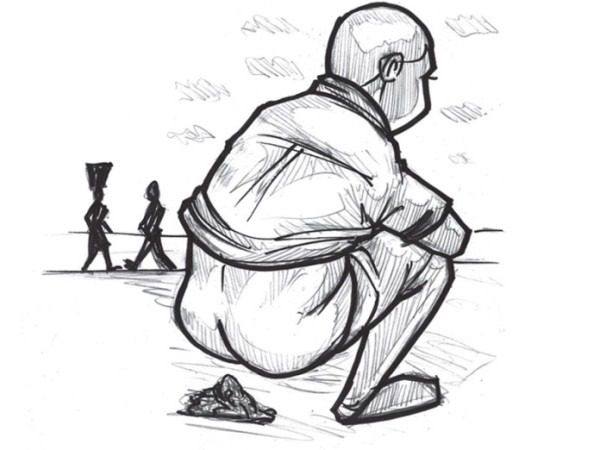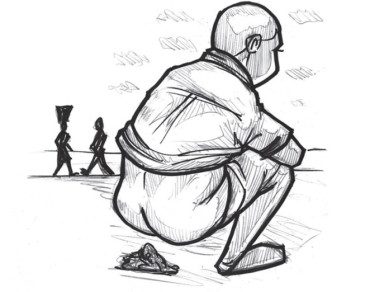National Issues
The Dangers Of Open Defecation


The provision of water and toilets will ensure a healthier environment
Ekiti, a largely agrarian state highly regarded in education, is ranked 29th in population among the 36 states in Nigeria. Ironically, it leads the country in the number of men, women and children who use the outdoors as convenience. The United Nations Children’s Fund and European Union said that 1.8 million Ekiti residents out of a total population of 2.7 million defecate in the open and account for 60.8% of the shameful practice nationally. Over 2.5 billion people lack access to improved sanitation globally, of which one billion are engaged in the unhygienic practice of open defecation.
At a two-day workshop organised by European Union/UNICEF on Water Sanitation and Hygiene and Open Defecation Free (ODF) campaign held at Ijero Ekiti last week, the coordinator of Community Led Total Sanitation (CLTS) said many residents were arrested and prosecuted for open defecation, particularly in Ado Ekiti, the state’s capital while efforts were being made to compel every household to have toilets.
Defecating in open fields, bushes and bodies of water, is widely practiced in Nigeria. Indeed, the country is one huge field, where people defecate without shame and without taking into consideration the impact of their actions on the health of others. In many rural communities, people still build houses without provisions for toilets, or as the case may be, latrines, where waste can be emptied without others coming into contact with it. In the urban centres, such cases are also pervasive. In many of our so-called modern cities, people use the outdoors as bathrooms and toilets. Many walkways and nearby bushes reek of urine and decaying faecal matter.
Yet experts have consistently warned that when large numbers of people are defecating outdoors, it’s extremely difficult to avoid ingesting human waste, either because it has contaminated the food or water supplies or because it has been spread by flies and dust. According to the joint UNICEF and the World Health Organisation report previously published on the issue, the absence of toilets remains one of the leading causes of illness and death among children. The report said that diarrhea, a disease often associated with poor sanitary conditions, and respiratory infections resulting from poor hygiene, kill about 400,000 children under the age of five annually. These deaths are largely preventable with improvements in water, sanitation and hygiene.
The UNICEF report was amplified by Dr. Michael Ojo, country representative of WaterAid to Nigeria, who said every sevenwomen out of 10 had no access to a safe toilets, and millions of other women and girls lacked safe and adequate sanitation. “Every year, over 85,000 mothers in Nigeria lose a child to diarrhoeal diseases caused by lack of adequate sanitation and clean water,” said Ojo. “Women and girls living in Nigeria without toilet facilities spend 3.1 billion hours each year finding a place to go to the toilet in the open.”
The provision of water and toilets are verifiable measures in fighting poverty and diseases. Even the modest efforts in the campaign against open defecation in some communities in Ekiti are already yielding good results. “We have brought improvement to 250 towns and communities in ODF by providing 10 toilets per public,” said Mohsena Islam, UNICEF/EU water sanitation and hygiene specialist. “We have also provided technical supports in 313 communities for them to know various ways to build and take ownership of low cost latrines and how to repair them in case of damage.”
We therefore call on governments, at every level, to invest more in the provision of water and public toilets, and create awareness on the dangers of open defecation. As Ban Ki-moon, the United Nations secretary general once declared, sanitation is a vital tool for improving the lives of millions of the poorest people.

















